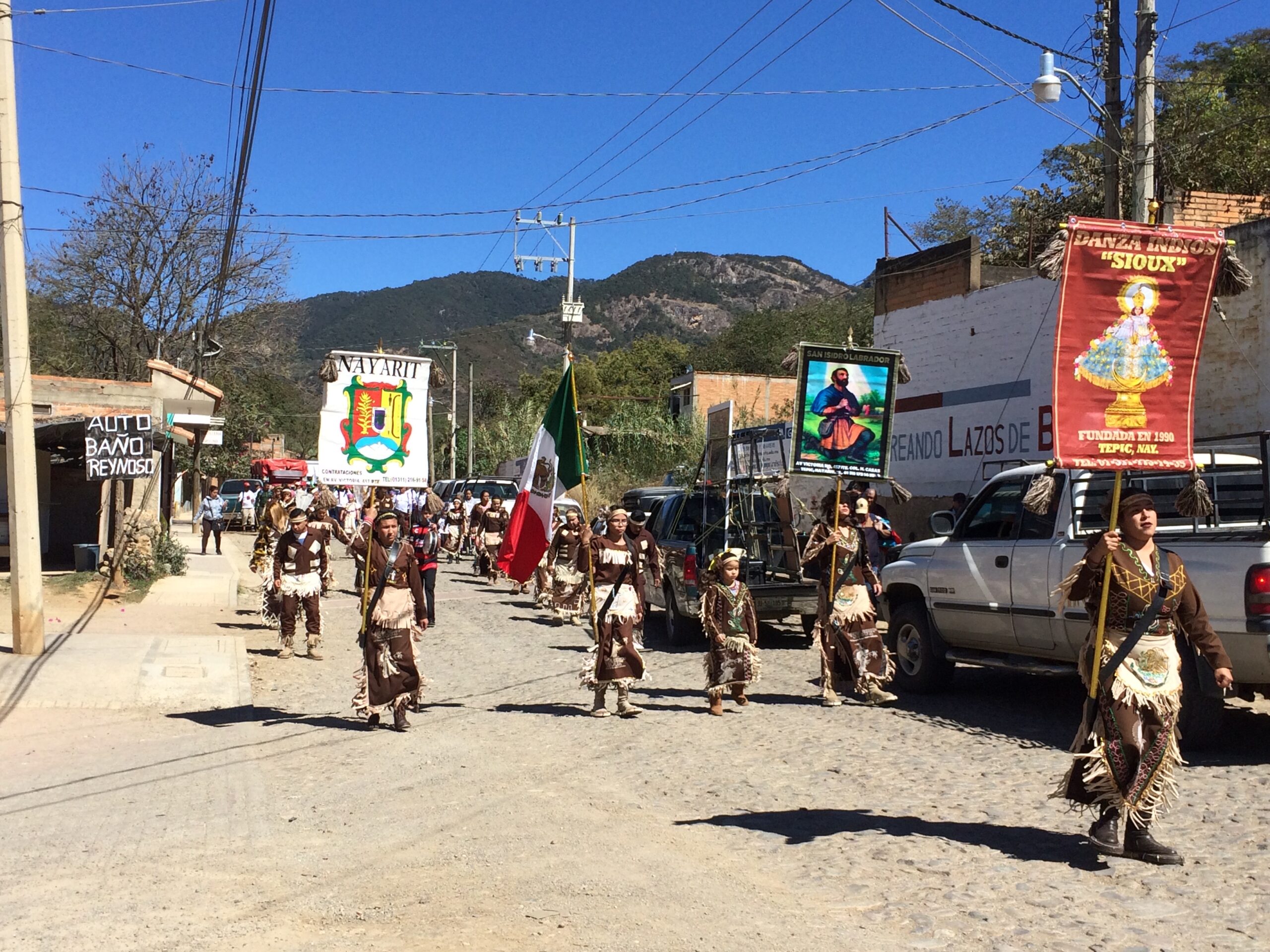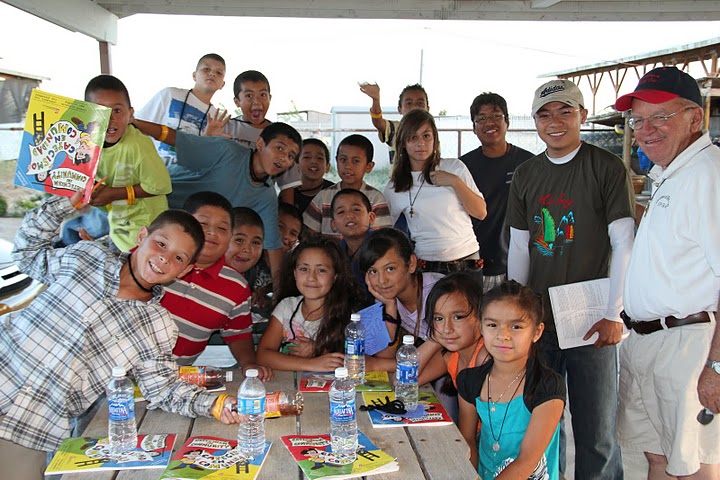Lighten the Burden / Aligera la Carga
La foto arriba es de matachines, entrando un santuario en México.
El mensaje hoy continúa el tema, Aligera la Carga. Este sigue la reflexión de ayer, y se encuentra en capítulo ocho del libro, La Fe del Migrante.
The picture above is of matachines dancers on pilgrimage to a Marian shrine in Mexico.
Today’s message continues the theme of Lighten the Burden. It follows from yesterday’s reflection, and is also found in chapter 8 of the book, Migrant Faith.
El Derecho a Recibir los Sacramentos
El Derecho Canónico 213 dice: “Los fieles tienen derecho a recibir de los Pastores sagrados la ayuda de los bienes espirituales de la Iglesia principalmente la palabra de Dios y los sacramentos”.
Es un “derecho”, no un privilegio recibir los sacramentos. Éste es un derecho enraizado en el Bautismo. No es un privilegio que otorgan las autoridades de la Iglesia, sino un derecho enraizado en la acción de Cristo. En el código antiguo del Derecho Canónico, esto se presentaba como el único “derecho” directamente establecido para los laicos. El Concilio Vaticano II pidió que estos bienes (palabra y sacramento) se otorgaran en abundancia.
El Derecho Canónico 843 se refiere a la responsabilidad de los sacerdotes: “Los ministros sagrados no pueden negar los sacramentos a quienes los pidan de modo oportuno, estén bien dispuestos y no les sea prohibido por el derecho recibirlos”.
El sacerdote tiene la responsabilidad de ver que la persona esté debidamente preparada para recibir los sacramentos. Además, el Derecho Canónico pide que el sacerdote de la gracia de los sacramentos. El Derecho Canónico se refiere a la responsabilidad del sacerdote y no de quien pide los sacramentos. Para cumplir con este requisito, los sacerdotes supervisan programas de formación en sus parroquias.
Las normas administrativas y pastorales para recibir los sacramentos se pueden encontrar en el Derecho Canónico, las prácticas diocesanas, y las reglas de sentido común desarrolladas en la comunidad local. En todos los niveles, es importante recordar que los sacramentos son una señal del amor de Cristo por su pueblo. Por esta razón, el Derecho Canónico cubre muchas situaciones que requieren discreción. Cuando una persona con necesidades especiales pide la gracia del sacramento, si hay alguna duda que la persona no puede entender el sacramento, la iglesia opta en favor de la persona (Derecho Canónico 913). Debemos desarrollar prácticas en relación a los sacramentos que correspondan a la realidad en las vidas de la gente que servimos. Las reglas son importantes, pero el ejemplo de la compasión de Jesús por el enfermo, el ciego, el lisiado y el marginado nos recuerda que el ministerio da testimonio del amor de Dios por el pobre y el más abandonado.
(Voy a continuar esta reflexión. Que nosotros “Aligera la carga.”)
The right to receive the sacraments
Canon 213 says, “The Christian faithful have the right to receive assistance from the sacred pastors out of the spiritual goods of the Church, especially the word of God and the sacraments.”
It is a “right”, not a privilege to receive the sacraments. This is a right rooted in Baptism. It is not a privilege granted by Church authorities, but a claim rooted in the action of Christ. In the former code of Canon law, this was presented as the only “right” directly stated for laypersons. The Second Vatican Council called for these goods (word and sacrament) to be made available in abundance.
Canon 843 addresses the responsibility of pastors: “The sacred ministers cannot refuse the sacraments to those who ask for them at appropriate times.”
A pastor has the duty to see that the person is properly prepared to receive the sacrament. Also, the canon calls on the pastor to make the grace of sacrament available. Responsibility in this canon refers to the activity of the pastor, not the petitioner. To fulfill this requirement, pastors oversee programs of formation in their parishes.
Administrative and pastoral guidelines for reception of the sacraments can be found in Canon Law, diocesan practices, and common-sense rules developed at the local community. On all levels, it is important to remember that the sacraments are the sign of Christ’s love for his people. For this reason, Canon Law covers many situations that demand discretion. When a person with special needs asks for the grace of sacrament, if there is any doubt that the person is able to understand the sacrament, the Church opts in favor of the person. See Canon 913. We need to develop practices around the sacraments that correspond to the realities in the lives of the people whom we serve. Rules are important, but the example of Jesus’ compassion for the sick, the blind, the lame and the outcast reminds us that ministry witnesses the love of God for the poor and most abandoned.
(I will continue this reflection for the next few days. Let us “Lighten the Burden”.)






